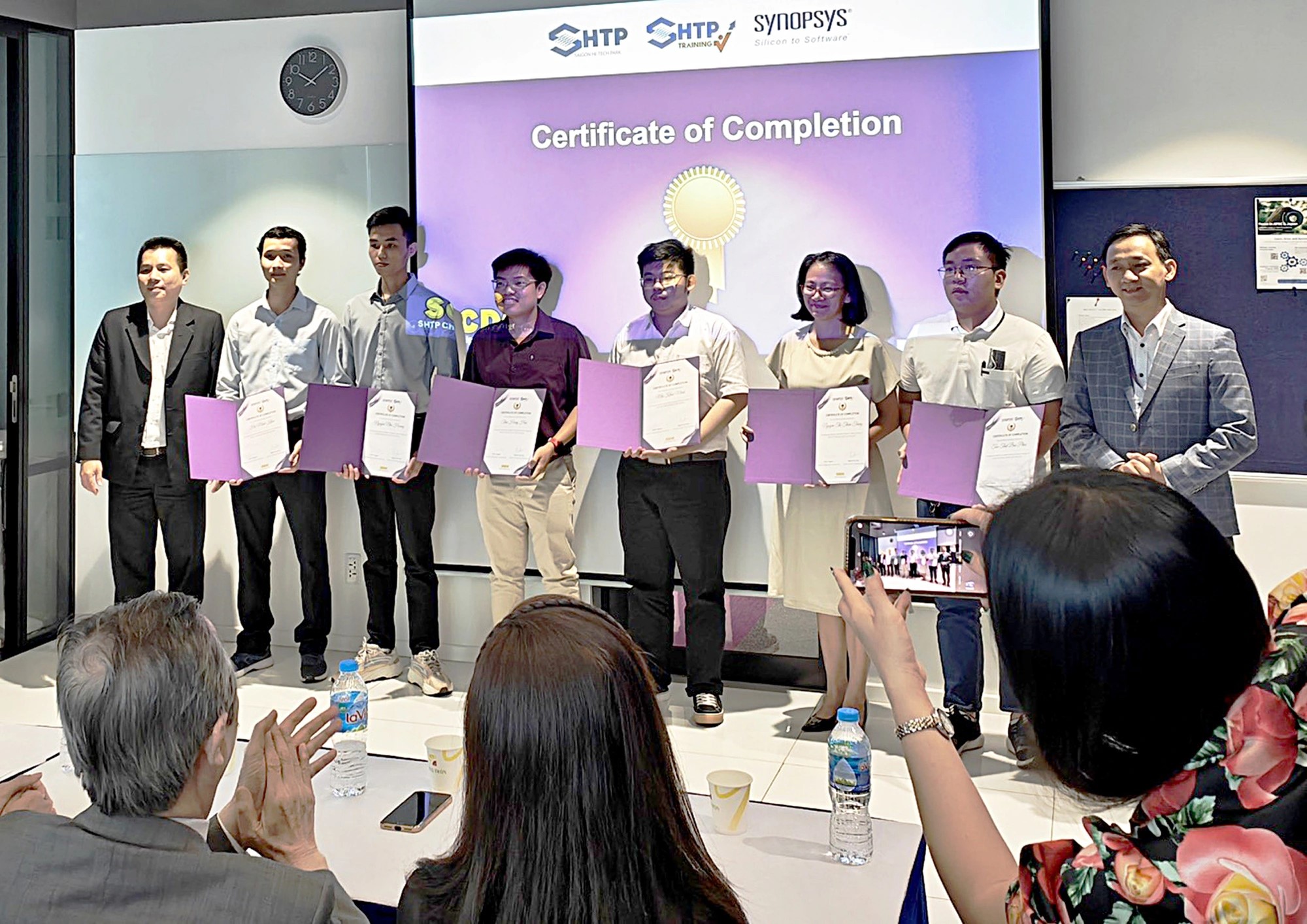The recent upgrade of Vietnam's relationship with the United States has opened the door for Vietnam's semiconductor industry.
However, to fully capitalize on the opportunity, Vietnam must build a high-quality workforce capable of meeting the stringent demands of world-leading tech companies.
Following the announcement that the U.S.-Vietnam relationship has been upgraded to a comprehensive strategic partnership since last month, tech businesses across Vietnam are investing in training their technical engineers to satisfy the needs of U.S.-based semiconductor manufacturers.
Engineers in high demand
At the end of August, Synopsys Vietnam, a subsidiary of U.S.-based semiconductor manufacturer Synopsys, hosted the closing ceremony for the Synopsys Intensive Program 2023 – a training program which put 30 students through a series of courses on integrated circuit design.
The 30 students who participated in the program were selected from a pool of 500 applicants from local universities, including Vietnam National University-Ho Chi Minh City (VNU-HCM), Ho Chi Minh City University of Technology and Education (HCMUTE), and Can Tho University (CTU).
Their majors are primarily related to electronics, telecommunications, automation, computer science, and physics.
"The training program was provided free of charge, with Synopsys covering all costs for the students to participate. We do the same things for our official trainees [who are not part of the program] at Synopsys Vietnam," explained Nguyen Phuc Vinh, technical director at Synopsys Vietnam.
Synopsys Intensive Program 2023 was not the first training course the company has held for students in Vietnam.
In 2022, Synopsys, in collaboration with VNU-HCM and Saigon Hi-Tech Park (SHTP), hosted a short-term online training course on integrated circuit design for local students.
According to Vinh, there is a growing demand for technical professionals with specialized training in integrated circuit design, and this demand is expected to increase in the coming years.
"On average, new companies need to hire 50-100 integrated circuit engineers," Vinh said.
"According to data from the Vietnamese Community of Integrated Circuit Administrators, the demand for such engineers increased to 400 in 2022 from 350 in 2021 and is projected to reach 500 in 2023."
This heightened demand also extends to related positions in areas such as software programming, server management, and cloud computing, with the most significant climbs taking place in sectors that directly utilize integrated circuit products, including electronics, computers, telecommunications, and automation.
Awaiting U.S. investment in training programs
According to Kim Huat Ooi, vice-president in charge of manufacturing, supply chains, and operations and general manager at Intel Vietnam, there is a shortage of IT experts with master's and Ph.D. degrees, especially in the research and development (R&D) sector, despite Vietnam’s high number of bachelor's degree holders
Kim believes that with Vietnam's large population, cultivating more homegrown IT experts could lead to significant opportunities for the nation’s tech companies.
"Vietnam harbors ambitious aspirations. We have heard stories of Silicon Valley and the semiconductor industry, and we perceive it as the next logical stride to propel us into a more profound engagement with the higher echelons of the supply chain," said Kim.
"In the future, the production of semiconductor devices won’t be a far-fetched dream. Undoubtedly, these endeavors involve substantial investments. Yet, with the passage of time, we are determined to transform this vision into reality."
In early September, just before U.S. President Joe Biden's visit to Vietnam, FPT University announced the opening of a new faculty dedicated to integrated circuits and semiconductors.
This move, it said, was meant to help build a highly skilled workforce capable of meeting present and future industry demands in Vietnam and around the world.
The faculty is set to admit its first students in 2024 and will focus on extensive training in integrated circuit design and research in the integrated circuit and semiconductor industry.
During President Biden's visit to Vietnam in September, Truong Gia Binh, chairman of FPT Group, proposed that the American government support Vietnam in training 30,000-50,000 semiconductor experts.
"On behalf of the Vietnamese business community, FPT hopes that the U.S. government will implement supportive policies to help Vietnam establish a semiconductor ecosystem. We suggest that the American government encourage its companies, especially large enterprises like Boeing, AT&T, Qualcomm, Intel, and Ford, to invest in Vietnam," Binh said.
He also called on the Vietnamese government to create policies in support of the development of a semiconductor workforce ranging from 30,000 to 50,000 individuals.
Like us on Facebook or follow us on Twitter to get the latest news about Vietnam!


















































